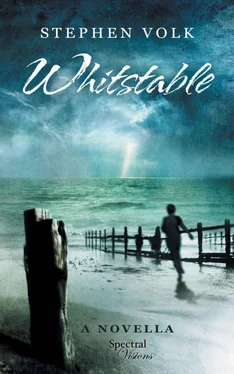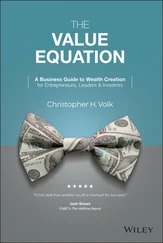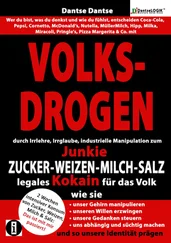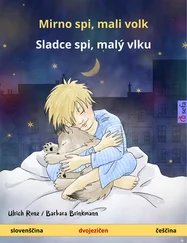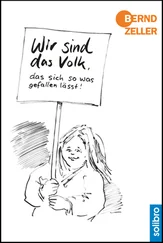“Really?”
“Yes. And that’s what I want to capture with this film. The nature of true evil.”
Whether it would be a success or not Cushing couldn’t know. He would do his best. He always did. He had an inkling how this sort of film worked after all these years and that’s what he would bring to the proceedings. That’s what they were paying for. That and, of course, his name.
His name.
He remembered the conversation in the dark of the Oxford cinema.
According to the Fount of All Knowledge, Carl’s mother moved to Salisbury shortly after Gledhill died, to live with her sister and set up a shop together. He hoped for once the gossip contained some semblance of accuracy. If she sought to rebuild her life afresh, that could only be a good thing. For her, and the boy.
For himself, there were other films on the horizon. He’d told John Redway to turn nothing down. He’d read the script of Dracula: Chelsea and it was rather good. He was looking forward to playing not only Lorrimer Van Helsing in the present day, but also his grandfather, in a startling opening flashback, fighting Christopher Lee on the back of a hurtling, out of control stagecoach before impaling him with a broken cartwheel. And if that was a success there were plans for other Draculas. Another treatment by Jimmy Sangster had been commissioned that he knew of, which boded well, and he hoped Michael Carreras would grasp the reins and take Hammer into a new era.
One of the more imminent offers was a role from Milton in his latest portmanteau movie Tales from the Crypt , but he didn’t care for the part, a variation of The Monkey’s Paw . Instead he’d asked if he could play the lonely, widowed old man, Grimsdyke, who returns from the grave to exact poetic justice on his persecutor. A crucial scene would require Grimsdyke to be talking to his beloved dead wife, and he planned to ask Milton if he’d mind if he used a photograph of Helen on the set. Then he could say, as he’d wished for many a long year, that they’d finally made a film together.
As it was, her photograph was never far away. He kept one above his writing desk at home, and another beside his mirror in his dressing room or make-up truck. At home he always set a place for her at the dinner table, and not a day went by when he didn’t talk to her.
Hopefully there’d be other movies in the pipeline. They’d keep the wolf from the door and the dark thoughts at bay—ironic, given their subject matter. Not that he could see his grief becoming any less all-consuming with the passage of time. Time, as far as he could imagine, could do nothing to diminish the pain. The lines by Samuel Beckett often came to mind: “I can’t go on, I must go on, I will go on,” and he knew that the third AD would be back before too long, to say they were ready for him.
But for the next few minutes until that happened, he would rest and try to clear his mind as he always did before a take, and picked up his Boots cassette recorder from between his feet, put on the small earphones and closed his eyes. He pressed “Play”. The beauty of Elgar’s Sospiri gave way to Noel Coward singing ‘If Love were All’.
One of Helen’s favourites, and his own.
He had lost the one thing that made living real and joyful, the person who was his whole life, and without her there was no meaning or point any more. But what had others lost? Yet, they survived.
He pictured the boy on his bicycle riding away, the rolled up magazine in his pocket.
Whilst he was living, he knew, time would move inexorably onward and the attending loneliness would be beyond description, but the one thing that would keep him going was the absolute knowledge that he would be united with Helen again one day.
The spokes of the bicycle wheel turned, gathering speed, blurring.
Life must go on, yes, but in the end— after the end—life was not important, just pictures on a screen, absorbing for as long as they lasted, causing us to weep and laugh, perhaps, but when the images are gone we step out blinking into the light.
Until then he was called upon to be the champion of the forces of good. He would spear reanimated mummies through the chest. He would stare into the eyes of the Abominable Snowman. He would seek out the Gorgon. Fire silver bullets at werewolves. He would burn evil at the stake. He would brand them with crucifixes. He would halt windmills from turning. He would bring down a hammer and force a stake through their hearts and watch them disintegrate. He would hold them up by the hair and decapitate them with a single swipe.
He would be a monster hunter.
He would be Van Helsing for all who needed him, and all who loved him.
I’ll start, if I may, with a couple of first encounters.
I was ten or eleven years old when I saw my first proper adult horror movie. It was almost certainly a Friday night, and my parents had popped across the road to have a drink with the neighbours. They had left my younger sister and me with a phone number and strict instructions to call if anything untoward occurred. I can’t recall which of us decided to watch that night’s Appointment With Fear on ITV, but I remember the movie vividly. It was The Haunted House of Horror directed by Michael Armstrong. Made in 1970, it was a spooky old house/slasher flick set in swinging London.
And it terrified me.
After the film was over I remember lying on the settee, literally shaking with fear, unable to believe what I had just seen:
A woman hacked to bits! (In my mind’s eye for years afterwards I saw her blood-streaked hand crawling across the floor like a crippled spider towards the candle she had dropped.) A man stabbed in the groin and blood (!!) pouring out of his mouth! (What awful anatomical connection had made that happen?)
Needless to say, The Haunted House of Horror made a massive impression on me. I felt as though I’d been unceremoniously introduced to a terrible, forbidden world of degradation and madness and absolute savagery. It was a world that fascinated and repelled me in equal measure. I was hungry to see more, but at the same time I found the prospect of it gut-churningly terrifying. Looking back on that time from my present standpoint, I can still recall with absolute clarity that raw and intense dichotomy of emotions— that sense of desperately wanting to dip my toe back in to the water, and yet at the same time making myself almost sick with anxiety at the prospect of it.
Seminal though that experience might have been, however, it was, in retrospect, the second horror movie I saw (in my possibly erroneous memory this took place the following Friday) that had a more profound and enduring effect on me. That movie was The Brides of Dracula and it was my first experience of the wonder that is Hammer.
I recall watching The Brides of Dracula in a state of nervous tension. But whilst I was constantly on edge, I seem to remember that my initial reaction once the film had finished was one of relief that it hadn’t bludgeoned my senses into terrified submission in the same way that The Haunted House of Horror had done the previous week. And yet, despite that, ultimately I found The Brides of Dracula more insidiously disturbing. Because whereas The Haunted House of Horror had been merely brutal, The Brides of Dracula was somehow… wrong .
By that, I mean that although the film was elegant, it had a sense of decadence about it, and was horribly perverse in a way I couldn’t fully articulate. The fey, softly-spoken vampire seemed to me a creature of weird hungers, ones that— bafflingly for a pre-pubescent schoolboy—somehow intertwined sex and death, even a suggestion of incest, into one alarmingly potent cocktail.
Читать дальше
